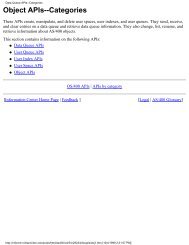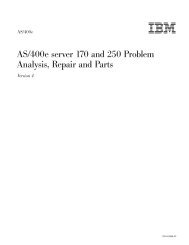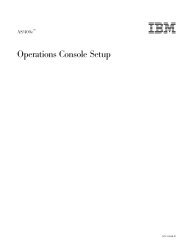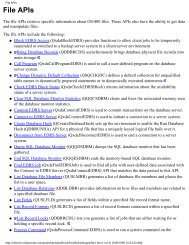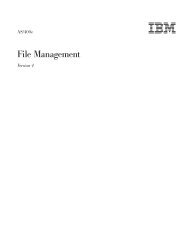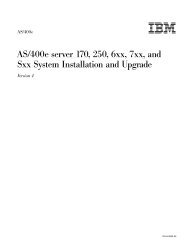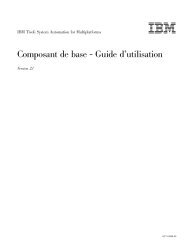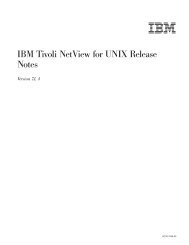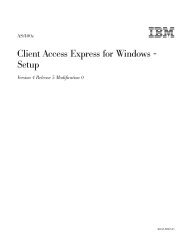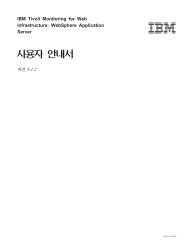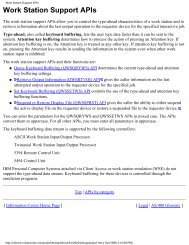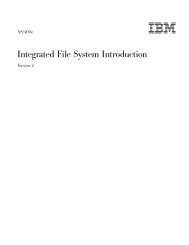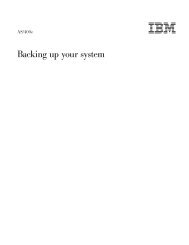Qshell Interpreter (qsh) - FTP Directory Listing - IBM
Qshell Interpreter (qsh) - FTP Directory Listing - IBM
Qshell Interpreter (qsh) - FTP Directory Listing - IBM
Create successful ePaper yourself
Turn your PDF publications into a flip-book with our unique Google optimized e-Paper software.
Operands<br />
Exit Status<br />
Examples<br />
66 <strong>Qshell</strong> <strong>Interpreter</strong> (<strong>qsh</strong>)<br />
zero or omitted, default settings at every eighth column position is<br />
used. If any nondigit character, char, is specified, it is used as the output<br />
character.<br />
-l lines Override the 66 line default and reset the page length to lines. Iflines is not<br />
greater than the sum of both the header and trailer depths (in lines), the pr<br />
utility suppresses output of both the header and trailer, as if the -t option<br />
were in effect.<br />
-m Merge the contents of multiple files. One line from each file specified by a<br />
file operand is written side by side into text columns of equal fixed widths,<br />
in terms of the number of column positions. The number of text columns<br />
depends on the number of file operands successfully opened. The<br />
maximum number of files merged depends on page width and the per<br />
process open file limit. The options -e and i are assumed.<br />
-n [char][width]<br />
Provide width digit line numbering. The default for width, if not specified, is<br />
5. The number occupies the first width column positions of each text column<br />
or each line of -m output. If char (any nondigit character) is given, it is<br />
appended to the line number to separate it from whatever follows. The<br />
default for char is a . Line numbers longer than width columns are<br />
truncated.<br />
-o offset<br />
Each line of output is preceded by offset s. If this option is not<br />
specified, the default is zero. The space taken is in addition to the output<br />
line width.<br />
-r Write no diagnostic reports on failure to open a file.<br />
-s char<br />
Separate text columns by the single character char instead of by the<br />
appropriate number of s (default for char is the character).<br />
-t Print neither the five-line identifying header nor the five-line trailer usually<br />
supplied for each page. Quit printing after the last line of each file without<br />
spacing to the end of the page.<br />
-w width<br />
Set the width of the line to width column positions for multiple text-column<br />
output only. If this option is not specified and the -s option is not specified,<br />
the default width is 72. If this option is not specified and the -s option is<br />
specified, the default width is 512.<br />
Each file is a pathname of a file to be printed. If no file operands are specified, or if<br />
a file operand is -, the standard input is used.<br />
v 0 on success<br />
v >0 if an error occurs<br />
1. Print every *.java file starting at page 3. If a file is less than 3 pages long, no<br />
output is printed.<br />
pr +3 code/*.java



